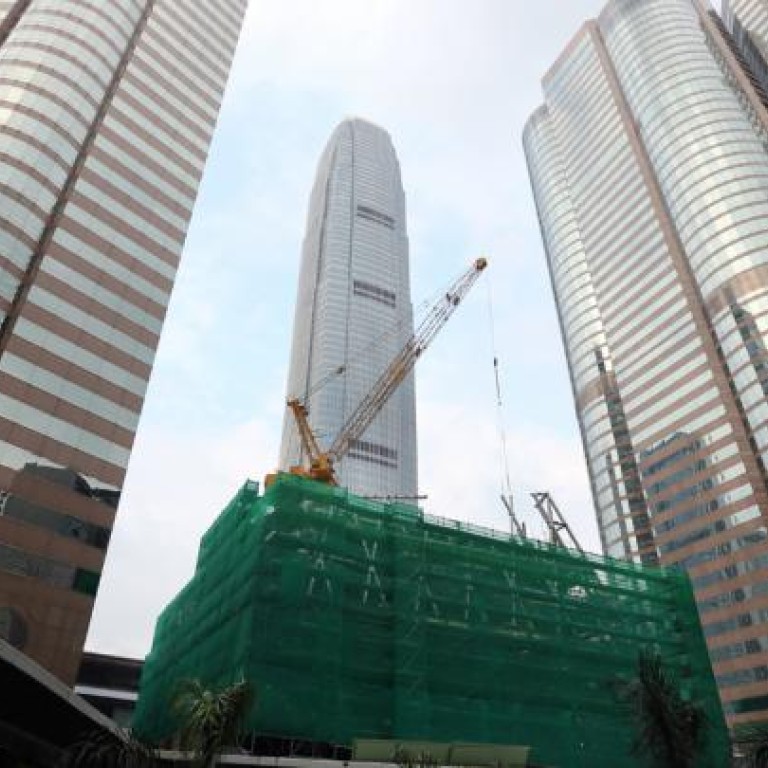
High rents force consulates out of Central district
Soaring rents in world's priciest city for offices mean diplomats are quitting core districts for other areas, where costs are up to 60pc cheaper
The high cost of renting an office in Hong Kong is forcing more consulates out of core districts.
At least three have relocated recently or are planning to do so.
The consulate of Sweden has moved from the Hong Kong Club Building in Central to the Bank of East Asia Harbour View Centre in Wan Chai, while the Romanian consulate has shifted from the Lippo Centre in Admiralty to 148 Electric Road in North Point.
The Canadian consulate is also moving. It decided several months ago to move its visa department from Exchange Square in Central to the DCH Commercial Centre in Quarry Bay.
Hong Kong remains the priciest office market in the world.
The cost of occupying an office fell 17.2 per cent to US$249 per sq ft per annum in the first quarter year-on-year, the largest decrease in all global markets.
But this was still 11 per cent more expensive than the West End of London, which ranks second at US$220, and 33 per cent ahead of Tokyo at US$186, according to a CBRE report released yesterday.
"One European country saw the rent for its consulate in Hong Kong rise by 60 per cent when the two-year tenancy expired recently," a Hong Kong-based Western diplomat said, without naming the country.
"The problem of soaring rent has emerged as a hot issue in diplomatic circles in Hong Kong."
Office rents in Admiralty are about 28 per cent lower than in Central, while levels in Wan Chai are 40 per cent lower. Offices in other parts of Hong Kong Island are up to 60 per cent lower.
With tenants turning their backs on Central, vacancy rates in different districts have reversed. In September last year more than one-third of all available office space could be found in East Kowloon and just one fifth in Central. By the end of last month, one-third of available space was in Central, with just 7.5 per cent in East Kowloon.
Estimates based on GDP growth projections show the city could face a big shortage of grade A office space by the end of the decade, the report warned, with the projected increase in supply of 8 million square feet less than half the 17 million sq ft needed.
Overall, the demand for office space in Asia remains robust.
Six of the 10 fastest growing markets worldwide in terms of costs are located in the region, with two areas in Beijing - Jianguomen central business district and Finance Street - taking the top two spots with annual growth rates of 49.4 per cent and 42 per cent. Nineteen of the 50 most expensive office markets are in Asia.
Andy Yuen, DTZ's director and head of its Hong Kong office, said it had been a trend for consulates to opt out of Central over the past decade. "It makes perfect sense in terms of cost."
Nine European Union member states - the Czech Republic, Finland, Italy, Latvia, Luxembourg, Poland, Spain and Sweden and cash-strapped Greece - have their consulates in Wan Chai.
Eleven, including France, Germany and the UK, are in Central or Admiralty.

